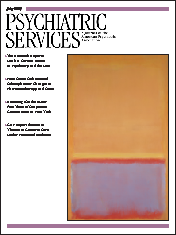Coffee, Tea, Chocolate, and the Brain
Coffee, Tea, Chocolate, and the Brain, edited by Astrid Nehlig, is part of a series on "Nutrition, Brain, and Behavior," edited by Chandan Prasad, to provide basic and scientific knowledge and perspective regarding the role of nutrition in brain function and behavior. Nehlig has a Ph.D. in physiology and in functional neurochemistry and serves as an expert for numerous scientific journals. She seems to have a special interest in the topic she covers in this book.
The book outlines epidemiologic data, possible mechanism of action, important physiologic and pharmacologic factors, and clinical issues related to caffeine and chocolate consumption. Included are the biophysiologic effects of caffeine on sleep, wakefulness, cognition, and mood. The effects on human behavior resulting from these biophysiologic effects are also precisely summarized. The information on the effect of caffeine on mood disorders, parkinsonism, ischemia, stroke, headache, and seizures are given special consideration. The book also addresses less commonly appreciated effects of caffeine on human stress and neurodevelopmental consequences of fetal exposure to caffeine. An interesting issue discussed in Coffee, Tea, Chocolate, and the Brain is the cerebral effect of noncaffeinated constituents of roasted coffee. Although the book focuses on providing information about caffeine, it outlines important information that is currently available about the biophysiologic and psychological effects of chocolate.
Nehlig successfully integrates current knowledge, understanding of the relevant research, and analysis of various data and views. Conflicting clinical views and references are presented, helping the reader to draw his or her own conclusions. The book not only provides details about commonly known effects of caffeine consumption but also enumerates less commonly known data. Although the book seems to be more inclined toward the beneficial effects of caffeine, the controversial issues of caffeine dependence and adverse effects are not ignored. Coffee, Tea, Chocolate, and the Brain would provide a wealth of knowledge for readers from various disciplines. However, the nature of the subject and presentation does make it tedious reading. Be sure to have a cup coffee to stay focused while reading the book, and chocolate afterwards to elevate your mood.
Dr. Qureshi is clinical assistant professor at the Southern Illinois University School of Medicine and attending psychiatrist at Choate Mental Health and Developmental Center in Anna, Illinois.



